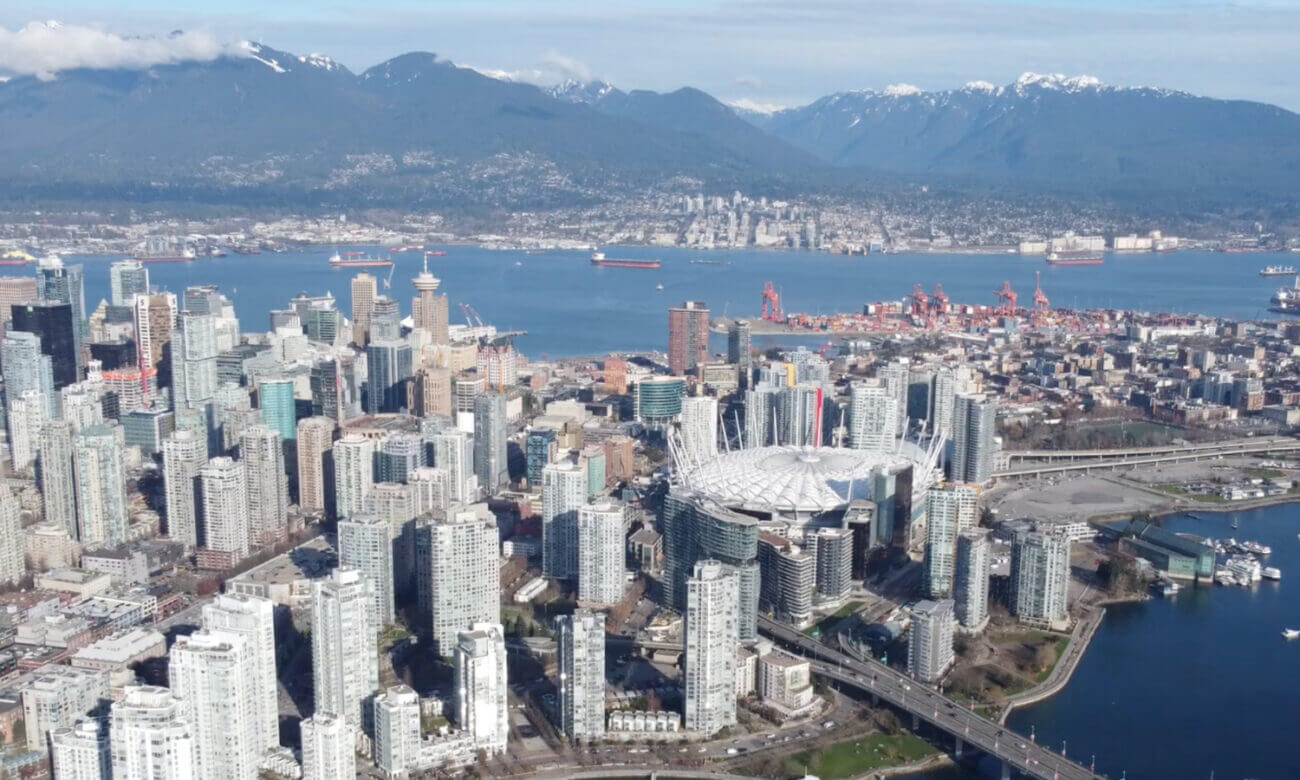Vancouver is considered one of the most desirable—and one of the most expensive—places to live in Canada. It’s a coastal city and a major tourist destination, connected to the northern and southern ends of British Columbia by the Sea-to Sky-Highway, and to eastern B.C. via the Trans-Canada Highway. The western part of the city is home to Stanley Park, the Robson and Alberni street shopping districts, and Davie Village (the heart of the city’s gay community). On the east side lies the third-largest Chinatown in North America, the Main Street and Hastings Street shopping districts, and the neighbourhood of Mount Pleasant. And in the city’s north end, by the port district, rests downtown Vancouver.
Vancouver rivals Toronto in being the most closely watched real estate market in Canada. So, for the 2022 edition of Where to Buy Real Estate in Canada, MoneySense partnered with Zoocasa—a full-service tech brokerage—to highlight the top Vancouver neighbourhoods in which to buy property, based on value and the potential for price growth.
If you’re willing to buy or relocate outside of Vancouver, our guide also includes a national ranking of cities and regions, as well as information on the top neighbourhoods in 12 other markets across Canada (found by tapping or clicking on the menu above). The rankings are based on data collected at the end of March 2022, and interviews were conducted in March and April. Read more about our methodology.
Where to buy real estate in Vancouver
To view all the data in the table, slide the columns right or left using your fingers or mouse. You can filter or rearrange the rankings by using the search tool or clicking on column headings. You can also download the data to your device by tapping on the Excel, CSV or PDF icons.
How to read the table:
- Benchmark price 2021: The composite benchmark price as of Dec. 31, 2021. It represents all property types, including attached and detached homes, townhouses/row units and apartment units. Read about how benchmark prices are calculated.
- 1-year, 3-year and 5-year growth: The percentage increase or decrease in the composite benchmark price (all property types) over each time frame.
- Value, economics and accessibility: These neighbourhood characteristics are each scored on a scale of five, with five representing the most value for your money, high levels of income and education, and ease of travel by foot, bike and public transit. To see how we determine these scores, read our methodology.
- Children: The neighbourhood’s percentage of households with kids.
Why we’re watching Vancouver
Vancouver is a vibrant city of around 630,000 people, and it has plenty to see and experience. It’s home to multiple beaches and the Stanley Park Seawall, part of the longest uninterrupted oceanfront path in the world. Vancouver has many different walkways and greenways, making it very friendly to pedestrians. And it’s easy to get around the city with the TransLink public transportation network, which includes the SkyTrain rapid transit system and SeaBus passenger ferry service. Vancouver is also a major immigration hub: 42% of the city’s residents are immigrants, and that number is expected to continue rising.
Before the pandemic, Vancouver was notorious for having Canada’s highest housing prices, and it was frequently among the most expensive markets globally. This is due in part to high immigration levels but also to its reputation as a leader in the tech, health care and service industries. The city is home to a thriving film industry, too, and it often appears in movies and TV shows. A geographical challenge has also contributed to Vancouver’s expensive housing market: Bordered by water and mountains, the city has limited space to house the fast-growing population. As a result, 61% of dwellings in the city are apartments.
“Before COVID struck, new measures were introduced to help stabilize the rate of growth in home prices,” explains B.C. realtor Casey Archibald. “There was the foreign buyers’ tax, the empty homes tax and an out-of-province speculation tax. The federal mortgage stress test was originally introduced in 2016 for insured mortgages and expanded to all mortgages in 2018. This required borrowers to qualify for a mortgage rate much higher than what they were actually getting, which took a toll on the region as well.”
By May 2019, these measures had led house prices to drop in East and West Vancouver, and in early 2020, the pandemic contributed to a further stalling of the market. However, by June 2020, the market had recovered—and it hasn’t looked back since. In March 2022, the benchmark price of a home was $2,677,500 in Vancouver West and $1,469,200 in Vancouver East. “With the record-low number of houses on the market, there has been a lot of upward price pressure in the last two years,” says Archibald.
Vancouver’s future real estate outlook
The housing supply remains incredibly low in many parts of the country, leading home prices to skyrocket as buyers compete over limited options. Vancouver is no exception, and prices are expected to continue increasing in the short term until supply returns to normal levels.


